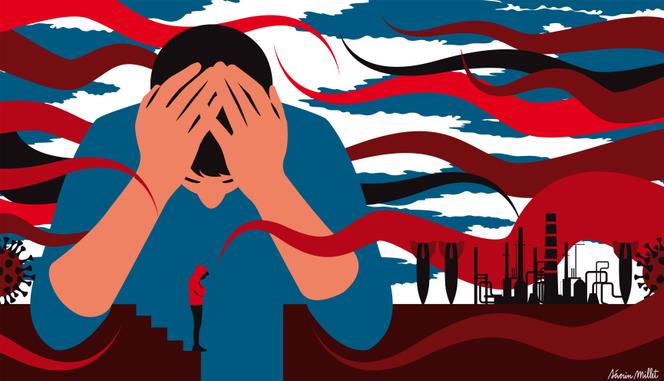


The never-ending environmental crisis, wars, health threats, lack of opportunities: "You have no idea the impact all the talk of 'hopelessness' and fatalistic messages can have at an age when you're shaping who you are," reported Charles-Edouard Notredame, a psychiatrist at Lille's University Hospital Center (CHU), who coordinates the national suicide prevention hotline 3114.
Doctors, psychiatrists and child psychiatrists – all on the front lines when it comes to dealing with teenagers and young adults' suffering – all agree that while this anxiety-inducing context is far from the only explanation for the malaise felt by some young people, it does weigh heavily on their minds. Yet if some are led to "dark thoughts" or suicide attempts, it's because of a tangle of factors. The barometer on the issue, published on February 6 by Santé Publique France, the national health service, also shows that this trend seems to impact a growing number of young people.
This declarative survey conducted in 2021 – year two of the Covid-19 crisis – among a sample of nearly 30,000 people aged 18 to 85, highlighted the deteriorating mental health of 18-24 year-olds. Reported suicidal thoughts more than doubled since 2014 in this age group, from 3.3% to 7.2%. This evolution was all the more striking as data for other age groups tend to stagnate, with 4.2% of all respondents declaring similar tendencies.
Among young adults, reported suicide attempts in the last 12 months rose by more than 60% (from 0.7% in 2017 to 1.1% of this age group in 2021), while lifetime suicide attempts increased by 50% over the same period (from 6.1% to 9.2%). This marked a break with previous surveys conducted since the early 2000s and then at regular intervals, in which the results for this age group were lower than or comparable to those of older respondents.
Santé Publique France described this as a "significant change," one confirmed to be growing by other indicators. The public organization reported that the number of emergency room admissions for suicidal thoughts and acts was higher in 2022 and 2023 than in 2021.
This observation was widely echoed by practitioners. While the shock of Covid-19 and its lockdowns may be receding, the demand for care among young adults and adolescents shows no sign of abating. On the contrary, overwhelmed child psychiatry and psychiatry departments, lengthening waiting times for consultations (up to six months after a suicide attempt, when seeing a doctor within a month is usually recommended), pediatric emergency rooms reserved for "suicide attempts," beds occupied by small "suicidal" patients in pediatrics: Neither hospitals nor ambulatory care report that this wave is beginning to subside.
You have 69.79% of this article left to read. The rest is for subscribers only.
